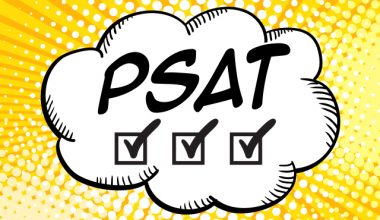The ACT (American College Testing) is one of the most common standardized test that is frequently used to determine college admissions in the USA. It examines the students’ academic performance in these areas, which include English, mathematics, reading, and science.
Though the ACT is an important part of the college application, this test should be available for the students with learning disabilities or physical disabilities who needed additional time to demonstrate their abilities. ACT helps these students by offering them, not only extra time, but also extended time.
In this article, we will explore the process of applying for ACT extended time in 2024, providing valuable insights and guidance for students who may benefit from this accommodation.
Table of contents
What is the ACT Extended Time?
ACT extended time is a testing accommodation provided to students who have documented disabilities or impairments that affect their ability to complete the test within the standard time limit.
This convenience offers an extra opportunity to finish each segment of the ACT, giving a more impartial testing climate for people who demand additional time to handle data, read, or compose.
It is essential to remember that not all students with disabilities are automatically granted ACT extended time. Every application is painstakingly inspected and assessed by the ACT Accommodations Services for Students with Disabilities (SSD) team.
The procedure prevents unfair advantage for those without a legitimate need for the accommodation and ensures that it is only made available to those who genuinely require it.
Who Qualifies for ACT Extended Time?
Students with learning disabilities, medical conditions, physical disabilities, hearing or vision impairments, ADHD, psychiatric disorders, or other disabilities may apply for an extended time.
Students already receiving accommodations under the Individuals with Disabilities Education Act (IDEA) and Section 504 of the Rehabilitation Act will automatically be eligible to receive allowable testing accommodations when they register for the ACT, with concessions for students attending public schools and on a 504 plan or IEP. This cuts through many of the frustrating bureaucracies families have previously encountered.
Unfortunately, students who attend private or homeschooled schools are not automatically eligible. These students are eligible for accommodations, but not automatically.
Eligibility Criteria for ACT Extended Time
In 2024, students must meet specific ACT eligibility requirements to apply for an extended time. The primary requirement is that the student have a documented disability that significantly limits their ability to finish the test within the allotted time.
This impairment could be a learning disorder, ADHD, a physical problem, a visual or hearing problem, or any other condition that makes it hard for the student to finish the test quickly.
A crucial part of the application process is documentation. The ACT requires far-reaching and up-to-date documentation from a certified professional, like an authorized clinician, specialist, or other relevant healthcare provider.
The diagnosis, the impact of the disability on the student’s functioning, and the requirement for an extended time as an appropriate accommodation should all be clearly outlined in the documentation.
The disability categories that ACT, Inc. approves requests for are as follows:
- Learning Disabilities
- Attention Deficit/Hyperactivity Disorder
- Psychiatric Disorders (Mood or Anxiety Disorders or Serious and Persistent Mental Illness)
- Visual Impairment
- Hearing Impairment
- Autism, Asperger’s Disorder, Pervasive Development Disorder or Autism Spectrum Disorder
- Speech and Language Disorders
- Medical Conditions
- Traumatic Brain Injuries
Types of ACT Accommodations
The specific accommodations granted may vary depending on the individual’s needs and the documentation provided. Here are some common accommodations that students can request on the ACT.
- Extended Time: Thanks to this accommodation, students will have more time to complete each test section. The length of the extended time may vary according to the requirements of the individual and the recommendations made by a qualified professional.
- Multiple-day examinations: Multiple-day testing may be an option for students who require additional breaks or cannot complete the test in one sitting. This convenience permits the understudy to complete the examination over numerous days within a predefined time span.
- Giant Print: The ACT can provide a test booklet with larger font sizes for students with difficulty reading small text or visual impairments.
- Format of Braille Tests: The test materials can be requested in Braille format from students who can read Braille.
- PC Use: Using a computer to type responses may benefit some students with physical or learning disabilities. The student can take the test on a computer thanks to this accommodation.
It is, however, essential to remember that the specific accommodations granted will be determined by the requirements of each student and the documentation supplied by a competent professional.
The ACT Accommodations Services carefully review each application for the Students with Disabilities (SSD) team, which then selects the appropriate accommodations to guarantee fair testing conditions while maintaining the integrity of the assessment.
How to Get Accommodations on the ACT, Step-by-Step
The process of applying for ACT extended time involves several steps and careful attention to detail. It is important to begin the application process well in advance to ensure sufficient time for review and processing.
Below are the key steps to follow when applying for ACT extended time in 2024.
#1. Obtain Comprehensive Documentation
As previously stated, thorough documentation from a competent professional is essential. A clear diagnosis of the disability, a description of how it affects the student’s functioning, and a recommendation for an extended time as an appropriate accommodation should be included in this documentation.
It is prudent to talk with the expert well ahead of time to guarantee that the documentation meets the ACT’s prerequisites.
#2. Register for the ACT
Make sure to list your preferred test center when you register for the ACT online and sign up before your preferred test date deadline. When you register, you will indicate the kind of accommodation you require for the test.
#3. Complete the Consent to Release Information Form
Students are required to fill out a Consent to Release Information form for the ACT. Using this form, the ACT can communicate with the competent professional who provided the documentation.
To ensure a smooth review, completing this form accurately and providing all relevant information is essential.
#4. Submit Documentation and Accommodations Request
You must submit the extensive documentation prepared by the qualified professional and the Consent to Release Information form. Depending on the submission options available, this should be possible through the ACT’s online portal or via mail.
#5. Wait for Review and Decision
The ACT Accommodations SSD team will review the application once the documentation and request for accommodations are submitted. The audit interaction might require a little while, so showing restraint during this time is fundamental.
The ACT team will carefully examine the provided documentation to determine whether the student meets the criteria for extended eligibility.
It’s important to remember that each application is looked at individually, and the decision will be made based on the needs and circumstances of each student.
#6. Receive the Decision
The ACT Accommodations SSD team will decide for the student after the review process. The choice will determine whether the extended time accommodation has been supported or denied or if extra data is required.
The details of the extra time granted and any other accommodations will be outlined in the decision letter if the total is approved. Reading and comprehending the decision letter thoroughly is essential to ensure compliance with the ACT’s guidelines.
#7. Prepare for the Test
If the extended time accommodation is approved, it is essential to adequately prepare for the ACT using the additional time provided.
Develop a study plan that accounts for the extended time, and consider practicing with timed mock tests to become familiar with the pacing required during the actual exam. Utilize resources such as study guides, online practice tests, and tutoring services to enhance your preparation.
#8. Seek Support and Resources
While applying for ACT extended time and preparing for the exam, seeking support and utilizing available resources is crucial. This can include contacting teachers, counselors, or disability services at your school for guidance and assistance.
Additionally, there are online communities and forums where you can connect with other students who have gone through similar experiences and share valuable insights and advice.
Is ACT Extended Time Worth It?
Whether extended time on the ACT depends on the individual student’s needs and circumstances. Extended time can be highly beneficial for students with disabilities or impairments that affect their ability to complete the test within the standard time limits.
Here are some factors to consider when evaluating the worth of extended time:
- Accommodating Individual Needs
- Enhanced Focus and Reduced Stress
- Maximizing Accuracy and Completeness
- Aligning with Individualized Education Plans (IEPs) or 504 Plans
- College Admission and Scholarship Opportunities
FAQs
Extended time accommodations for the ACT may be available to students with documented impairments or disabilities that significantly limit their ability to complete the test within the allotted time.
The review process can take several weeks. It is advisable to start the application process well before your desired test date to allow sufficient time for review and processing. Be patient during the review period and check for updates from the ACT Accommodations SSD team.
You may be eligible for multiple accommodations based on your documented needs. The ACT considers each application case-by-case basis and determines the appropriate accommodations to ensure a fair testing environment.
Extended time itself should not impact your score. The ACT scoring process considers the extended time accommodation, ensuring that scores are fair and comparable to those of other test-takers. Extended time is intended to provide a more equitable testing environment, allowing you to demonstrate your knowledge and skills without time-related barriers.
Conclusion
Students with disabilities have the chance to demonstrate their abilities on an even scale with the other students during an ACT extended time accommodation test.
A wise decision is to apply for ACT extended time in 2024 cautiously bearing in mind adequate documentation, attention to filling the application form properly, and careful but comprehensive preparation for the exam.
Students can be fully prepared for the process, as well as the exam, by following the steps we have suggested in this guideline and availing themselves of extra help when they need to. Keep in mind that the time and a half rate is developed to even it on everyone and you can truly demonstrate what you are capable of.
References
- Blog.prepscholar.com-Act Extended Time
- Chariotlearning.com-Extended Time on the Act
- Leaprogram.com-Tips for getting Act Extended Time



